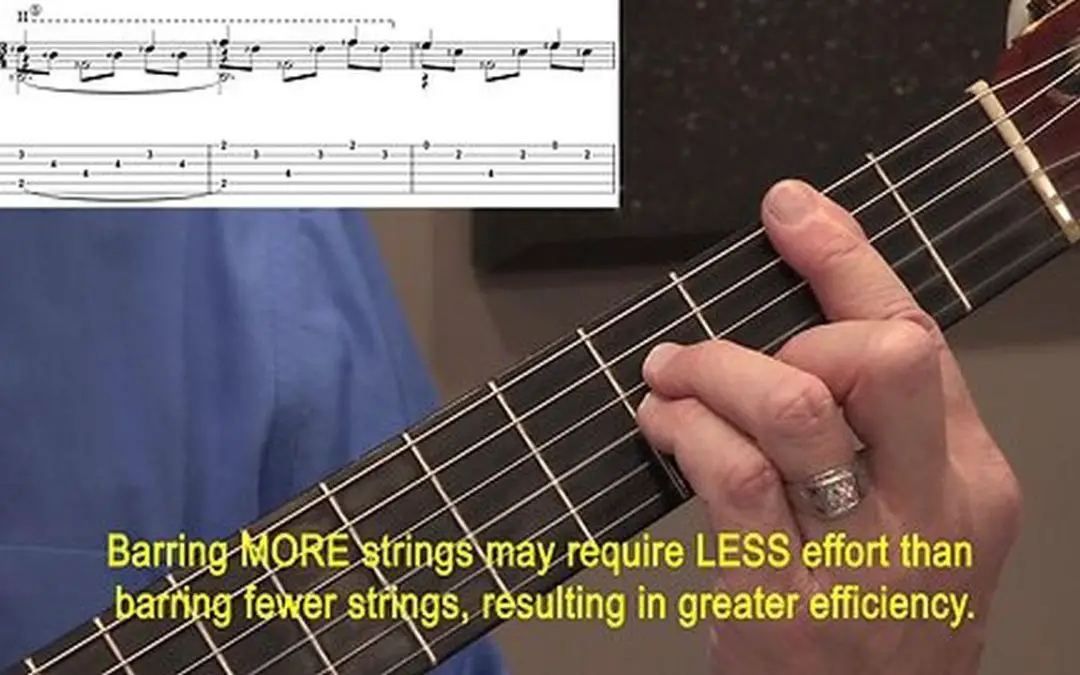Have you ever found yourself mindlessly strumming a pretend guitar while waiting for your laundry to finish? Or maybe your fingers start twitching in anticipation whenever you hear your favorite rock anthem? Congratulations, friend - you just experienced the power of muscle memory in guitar learning! In this article, we’ll dive into the fascinating world of muscle memory and how it can transform your guitar playing skills from zero to hero in no time. So grab your air guitar and get ready to rock!
Contents
- 1 Unveiling the Mysteries of Muscle Memory in Guitarists
- 2 The Biological Underpinnings of Muscle Memory and Its Role in Guitar Mastery
- 3 Strategies for Harnessing Muscle Memory in Your Guitar Practice Routine
- 4 The Interplay Between Muscle Memory and Creative Expression on the Guitar
- 5 Overcoming Common Misconceptions About Muscle Memory in Guitar Learning
- 6 Tailoring Your Practice Sessions for Optimal Muscle Memory Development
- 7 Beyond the Basics: Advancing Your Guitar Skills Through Muscle Memory Insights
- 8 FAQs
- 9 Keep Strumming!
Unveiling the Mysteries of Muscle Memory in Guitarists
Do you ever wonder how your fingers seem to effortlessly find their way around the guitar fretboard, even after years of not picking up your instrument? It’s like your fingers have a mind of their own, right? Well, that’s because of a little thing called muscle memory.
So, what exactly is muscle memory and how does it work for guitarists? Essentially, muscle memory is when your muscles remember repetitive movements and can perform them automatically without conscious effort. It’s like riding a bike – you never forget how to do it. As guitarists, we rely heavily on muscle memory to play intricate chords, scales, and solos without having to think about each finger placement.
**Here are some fascinating facts about muscle memory in guitarists:**
- Your muscle memory improves with practice, so the more you play, the better your fingers will remember complex patterns.
- Muscle memory is stored in the cerebellum, the part of the brain responsible for motor control.
- Even if you haven’t played in years, muscle memory can kick in and help you pick up where you left off with surprising accuracy.
So, the next time you impress your friends with a killer guitar riff without breaking a sweat, just remember – it’s all thanks to your trusty muscle memory. Keep practicing, keep playing, and let your fingers do the talking!

The Biological Underpinnings of Muscle Memory and Its Role in Guitar Mastery
Ever wonder why your fingers seem to effortlessly fly across the strings when playing your favorite guitar riff? It’s all thanks to muscle memory, a fascinating phenomenon that allows your body to perform tasks automatically without conscious effort. But what exactly is muscle memory and how does it work?
When you practice a specific guitar technique repeatedly, your brain creates neural pathways that make it easier for your muscles to remember and perform that movement. This process, known as motor learning, is responsible for the rapid improvement you see in your guitar playing skills over time. So the next time you nail that tricky solo, just remember – it’s not just talent, it’s science!
But muscle memory isn’t just about repetition. It also involves a complex interplay of biological processes within your body. For example, studies have shown that muscle memory is stored in the cerebellum, the part of your brain responsible for coordinating movement. Additionally, muscle memory is closely linked to the concept of proprioception, or the body’s ability to sense its own position in space. This is why experienced guitarists have such a keen sense of where their fingers need to be on the fretboard without looking.
So, the next time you pick up your guitar and effortlessly play through a song you’ve been practicing for weeks, remember that it’s all thanks to the amazing power of muscle memory. And who knows, maybe one day you’ll achieve guitar mastery – all thanks to those incredible neural pathways and biological processes working behind the scenes!

Strategies for Harnessing Muscle Memory in Your Guitar Practice Routine
When it comes to honing your guitar skills, muscle memory is your best friend. It’s like having a tiny guitar-playing robot living inside your fingers, except it’s not a robot, it’s you. So, how do you tap into this superpower and make the most out of your practice routine? Here are some strategies to help you do just that:
- **Start slow and steady**: Just like a sloth on a hammock, take your time and allow your muscles to gradually memorize the movements. Slow and steady wins the guitar race.
- **Repeat, repeat, repeat**: Repetition is key when it comes to muscle memory. Keep practicing that tricky riff until your fingers can play it in their sleep.
- **Mix it up**: Variety is the spice of guitar life. Don’t just stick to one song or technique. Switch things up to keep your muscles on their toes (or fingers).
And remember, muscle memory is like a relationship – it needs love and attention to thrive. So, show your muscle buddies some love and watch your guitar skills soar to new heights!

The Interplay Between Muscle Memory and Creative Expression on the Guitar
When it comes to playing the guitar, muscle memory is your best friend and worst enemy. One moment you’re effortlessly strumming your favorite chords, and the next you’re fumbling over every note like a beginner. It’s like your fingers have a mind of their own, taunting you with their unpredictable behavior.
But fear not, dear guitarist, for muscle memory is not the only player in this game. Creative expression also has a seat at the table, ready to swoop in and save the day when your fingers just won’t cooperate. It’s the yin to muscle memory’s yang, the spice that keeps your playing from becoming stale and robotic.
Think of it this way: muscle memory is like the reliable but slightly boring friend who always knows the right chords to play. Creative expression, on the other hand, is the unpredictable wildcard who adds flavor and excitement to your music. Together, they create the perfect balance for a truly magical musical experience.
So next time you find yourself stuck in a rut with your guitar playing, remember the interplay between muscle memory and creative expression. Embrace the chaos, let your fingers dance across the strings with wild abandon, and watch as your music comes alive in ways you never thought possible. Who knows, you might just discover a whole new side of your playing that you never knew existed. Rock on, fellow guitarists!
Overcoming Common Misconceptions About Muscle Memory in Guitar Learning
So you think muscle memory in guitar learning is just about mindlessly repeating the same chords over and over again, huh? Well, let me set the record straight for you. Here are some common misconceptions about muscle memory in guitar learning:
First off, muscle memory isn’t just for beginners. Even seasoned guitarists rely on muscle memory to play complex solos and riffs effortlessly. It’s like riding a bike – once you learn how to do it, your muscles remember the movements, even if you haven’t played in a while.
Another misconception is that muscle memory is just about repetition. While practice does play a crucial role in developing muscle memory, it’s not the only factor. Technique, hand positioning, and timing all contribute to muscle memory development. So, it’s not just about mindlessly strumming that same chord for hours on end.
Lastly, don’t underestimate the power of muscle memory in helping you progress as a guitarist. Once you’ve mastered basic chords and scales, your muscle memory will kick in to help you learn more advanced techniques faster. So, next time you pick up your guitar, remember that muscle memory is your trusty sidekick in this musical journey.
Tailoring Your Practice Sessions for Optimal Muscle Memory Development
Are you tired of spending hours in the gym with no significant muscle memory development to show for it? Fear not, dear reader, for I have some tailor-made tips to help you make the most out of your practice sessions! No more mindlessly going through the motions, it’s time to put in the work and see some real results.
First things first, **mix things up**. Don’t get stuck in a rut doing the same exercises over and over again. Your muscles crave variety, so make sure to switch things up and challenge them in new ways. From different variations of exercises to trying out new equipment, keep your muscles guessing and they’ll respond with growth and memory development.
Next, **focus on form**. It’s easy to get caught up in lifting heavy weights or doing as many reps as possible, but if your form is sloppy, you’re not doing yourself any favors. Take the time to perfect your technique and ensure that you’re engaging the right muscles with every movement. This will not only prevent injuries but also help your muscles remember the correct way to perform each exercise.
And last but not least, **give yourself time to rest**. Muscle memory development doesn’t happen overnight, so be patient with yourself. Make sure to incorporate rest days into your schedule to allow your muscles to recover and grow. Remember, progress is a marathon, not a sprint, so take care of your body and it will reward you with optimal muscle memory development.
Beyond the Basics: Advancing Your Guitar Skills Through Muscle Memory Insights
So you’ve mastered the basics of guitar playing – congrats! But now it’s time to take things to the next level and advance your skills through the power of muscle memory insights. Here are some tips to help you become a guitar wizard:
1. **Practice, practice, practice:** The key to developing muscle memory is repetition. Make sure you’re practicing regularly and focusing on the areas where you want to improve. Whether it’s mastering a tricky chord change or nailing a complex riff, the more you practice, the easier it will become.
2. **Mix things up:** Don’t get stuck playing the same old songs or exercises. Try learning new genres, techniques, or scales to challenge your muscle memory in different ways. The more versatile you are as a guitarist, the more you’ll be able to impress your friends (and maybe even score a free drink or two at the local open mic night).
3. **Relax and be patient:** Developing muscle memory takes time, so don’t get discouraged if you’re not seeing immediate results. Keep a positive attitude, stay relaxed, and trust the process. Before you know it, you’ll be playing like a pro and wondering why you ever doubted your guitar skills in the first place.
FAQs
How does muscle memory help in learning to play guitar?
Muscle memory is like having a cheat code for playing guitar. It allows your fingers to remember where to go without even thinking about it. So, when you’re shredding that sick solo, your muscles already know the way.
Can muscle memory make learning guitar easier?
Absolutely! Just think of muscle memory as your trusty sidekick on your guitar learning journey. It helps you progress faster because your fingers can automatically find their way around the fretboard, making you look like a rockstar in no time.
How can I improve my muscle memory for playing guitar?
Practice, practice, practice! The more you play, the more your muscles will remember the movements. Repetition is key here, so don’t be afraid to play that riff a thousand times until it’s ingrained in your muscle memory.
Is muscle memory only for experienced guitar players?
Not at all! Muscle memory is for everyone, whether you’re a beginner or a seasoned pro. It’s like a magical power that anyone can harness to become a guitar-playing wizard. So, get practicing and let your muscles do the work for you.
Can muscle memory help me remember complex chords and finger placements?
Definitely! Muscle memory is like your personal guitar memory bank. It can help you remember even the trickiest of chords and finger placements, making playing them feel like second nature. Just keep practicing and watch your muscle memory work its magic.
Keep Strumming!
So, remember, the next time you feel like giving up on learning that tricky guitar riff, just keep strumming away. Your muscle memory is a powerful tool just waiting to help you master that chord progression. And who knows, maybe one day you’ll be shredding like a rockstar without even breaking a sweat. So keep practicing and let your muscle memory do the work- you’ll be amazed at how quickly you progress!



